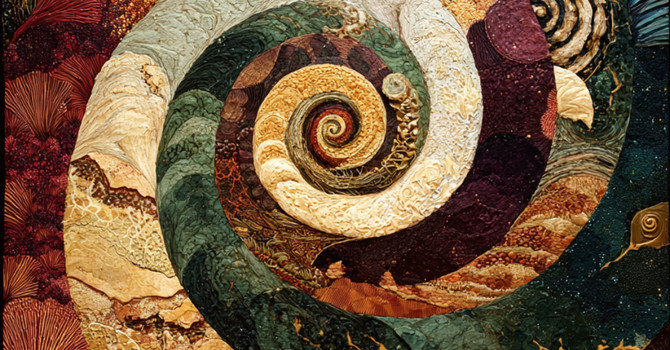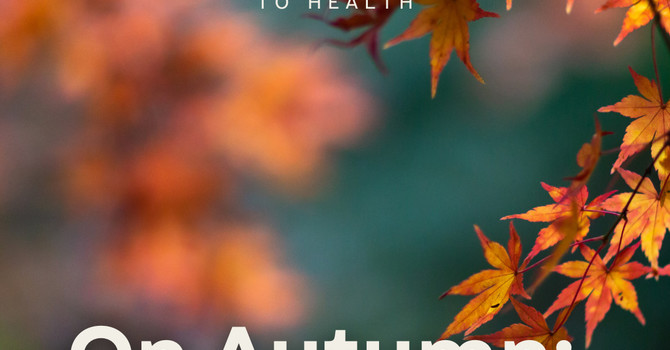
With the increasing number of cases of suicidal depression plaguing our communities, I assert that it is time that we not only revive the use of this elegant medicine but also the formidable holistic paradigm that it emerges out of and which can wisely make sense and apply this timeless knowledge.
With the recent revelations of Dr. Rania Awaad’s important research on suicide in the Muslim community (1) I thought to spotlight one of the main homeopathic remedies that can be used in such a condition.
Aurum metallicum, otherwise known as metallic gold, is one of the most widely used homeopathic medicines for depression and is renowned for its ability to cure the deepest depressions and suicidal states.
This is a remedy that suits people who are intense, idealistic, and burdened with perfectionism. People that can benefit from Aurum are often incredibly religious, yet despite their spirituality find themselves still able to slip toward clinical depression and suicide. One does not need to have suicidal ideation to benefit from Aurum, but it is more often than not a part of the case.
Aurum’s keynotes (indications of its clinical applicability) are as follows:
- Profound melancholy/depression
- Constant swelling on suicide
- Feeling life is a burden
- Spiritual inclination and desire for prayer/meditation
- Ailments from grief/ disappointed love
- Fear of failure
- Palpitations and angina
- Bone pains
- Boring headaches starting at the inner canthus of the eye and moving up the head
- Chronic sinusitis with nasal obstruction
- Hair loss
- Somatic pains worse at night
- Aversion: eating meat
- Amelioration: listening to music (deep love for music)
Aurum has been used homeopathically since the days of Hahnemann (1755-1843), but classically in the larger Hikma tradition for thousands of years.
Hahnemann notes the following in his magnus opus Materia Media Pura (2):
I was delighted to find a number of Arabian physicians unanimously testifying to the medicinal powers of gold in a finely pulverized form, particularly in some serious morbid conditions, in some of which the solution of gold had already been of great use to me. This circumstances inspired me with great confidence in the assertions of the Arabians.
The first trace of this we meet with in the eight century, when [Jabir ibn Hayyan] (De Alchimia traditio, Argent, ap. Zetzner, 1698, lib, ii, p. iii, cap. 32) vaunts gold as a “materia et en juventute corpus conservans” ["and a body that conserves material in youth”].
Hahnemann goes on to say:
Towards the end of the tenth century Serapion the younger (De Simplicibus Comment. Venet, fol. ap. Junt., 1550. cap. 415, p. 192), recommends it in these words: "Powdered gold is useful in melancholy and weakness of the heart. "
Then at the commencement of the eleventh century Avicenna [Ibn Sina] (Canon, lib. ii, cap 79) says: "Powdered gold is one of the medicines against melancholy, removes foetor of the breath, is, even when given internally, a remedy for falling out of the hair, strengthens the eyes, is useful in pain of the heart and palpitation, and is uncommonly serviceable in dyspnea.
Early Islamic medicine was often paired with an alchemical orientation so it may not be surprising to see the likeness of the ancient alchemical physician Jabir ibn Hayyan (d. 813 AD) being quoted on the healing qualities of elemental gold. Later Hakims of the Prophetic Medicine tradition also noted gold’s medicinal effects with Ibn Qayyim (d. 1350 AD) noting the following in his famous al-Tibb al-Nabawi (3):
Gold is the adornment of this temporal life; it is the talisman of existence, and makes the soul glad, strengthens people’s backs, and is God’s secret on His earth. Its temperament includes all the qualities, and it contains a gentle heat, which enters into all the electuaries which are gentle and refreshing. It is most moderate and the noblest of mineral.
When gold filings are mixed with medicines, these are beneficial for weakness of the heart, tremors… grief and anxiety, for upsets and love sickness.
It has an amazing property for strengthening souls, which is the reason for the permission of its use during war and in the army.
Al-Tirmidhi has related, from the hadith of Burayda' al-Isri: ‘The Messenger of God ﷺ entered on the day of victory (fath) and his sword had gold and silver upon it.’
Gold is the king of the mineral kingdom and the supreme adornment of the life of the Hereafter. In this world, however, its curative powers are clear and reliable.
With the increasing number of cases of suicidal depression plaguing our communities, I assert that it is time that we not only revive the use of this elegant medicine but also the formidable holistic paradigm that it emerges out of, which can wisely make sense and apply this timeless knowledge.
This holistic healing paradigm necessitates that all remedies be individualized and perfectly attuned to the expression of the organism in its totality. This requires the expertise of a traditionally-trained Hakim, especially one grounded in homeopathy, to be able to most aptly apply this, or any other suitable remedy, safely and properly.
*I advise all readers to consider the above as educational material and to consult with their naturopathic physician or homeopath to learn more about how Aurum, and homeopathy in general, can help them with their ailments.
Citations:
-
Awaad R, El-Gabalawy O, Jackson-Shaheed E, et al. Suicide Attempts of Muslims Compared With Other Religious Groups in the US. JAMA Psychiatry. Published online July 21, 2021. doi:10.1001/jamapsychiatry.2021.1813
-
Hahnemann, Samuel, and Charles J. Hempel. Materia Medica Pura. New York: William Radde, 1846. Print.
-
al-Jawziyya, I.Q. (1998) Medicine of the Prophet. The Islamic Texts Society, Cambridge. (Translated and Edited by Penelope Johnstone)
Dr. Mazen Atassi
Founding Director, Naturopathic Doctor, Homeopath, Somatic Trauma Counselor & Hikma Educator
Contact Me


